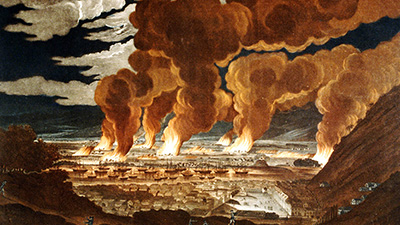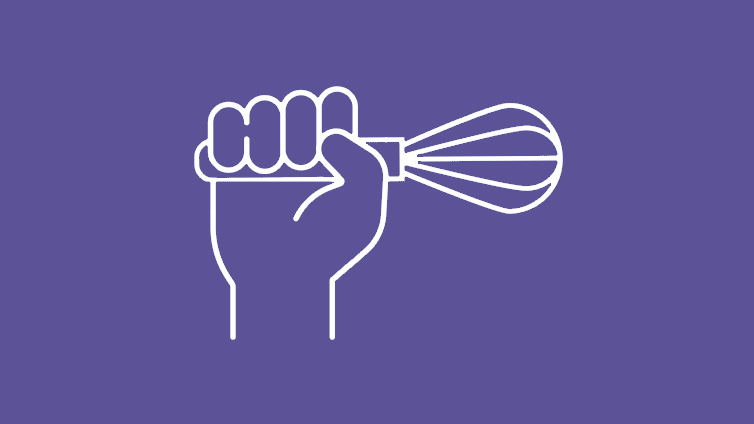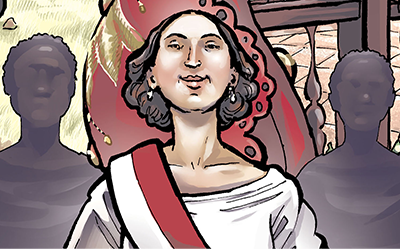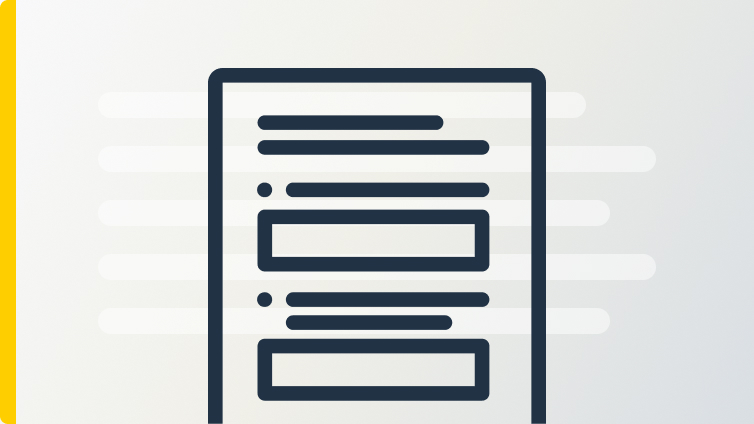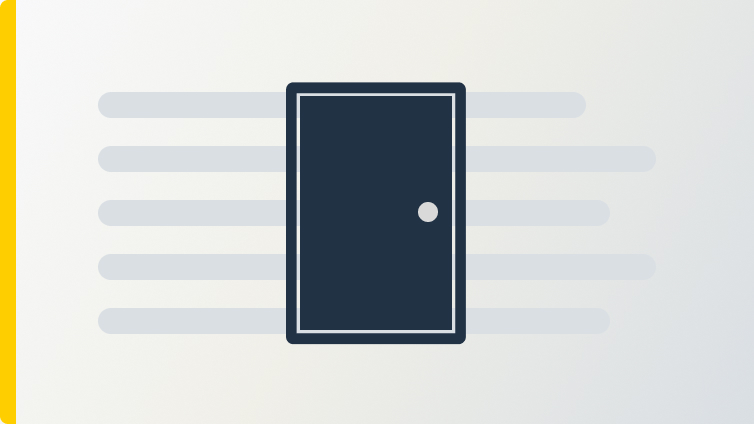Atlantic Revolutions
Teacher Resources
Driving Question: How was the period from 1750 to 1825 an “Age of Revolution”?
In this lesson, you'll examine revolutions across the Atlantic world and beyond—from the Americas to Haiti to South America. You’ll explore what sparked them, who participated, and how revolutionary these changes really were, especially for women and marginalized groups.
Learning Objectives:
- Use the historical thinking practices of comparison and causation to analyze revolutions of this period.
- Use evidence to evaluate how women contributed to revolutionary movements in the long nineteenth century.
- Use a graphic biography to support, extend, or challenge the overarching narratives of this period.
Vocab Terms:
- abolitionist
- citizen
- democratic
- enslavement
- liberal
- nationalism
- reform
- revolution
Opener: Atlantic Revolutions
To teach this lesson step, refer to page 2 of the Lesson 7.3 Teaching Guide.
What does it mean to want change? What makes a revolution actually revolutionary? You’ll start by exploring a protest song and considering your own perspective before diving into the revolutions of the long nineteenth century.
Revolutions Around the World
To teach this lesson step, refer to page 3 of the Lesson 7.3 Teaching Guide.
Want tips for before-, during-, and after-reading scaffolds? Find reading strategies and more ways to support all learners in our Differentiation Guide.
Ready to cook up a revolution? See Recipe for a Revolution Materials from other OER Project teachers.
-
Guiding Questions
-
Before you read
Preview the questions below, and then skim the article. Be sure to look at the section headings and any images.
While you read
Look for answers to these questions:
- How did the Seven Years’ War help lead both the American and French Revolutions?
- What were the results of the American Revolution in terms of achieving independence and creating an egalitarian society?
- How did the French Revolution transform France?
- Why was the Haitian Revolution the most radical of them all?
- What fears led to internal divisions within the Latin American revolutions?
After you read
Respond to these questions: Are there any limits on the changes that political revolutions can bring? Why or why not?
-
Guiding Questions
-
Before you watch
Preview the questions below, and then review the transcript.
While you watch
Look for answers to these questions:
- What were the main social classes in Saint-Domingue?
- Why was the social structure in Saint-Domingue unstable?
- What was life like for enslaved people in Saint-Domingue?
- What were the goals of the revolutionaries at the start of the revolution?
- How did Toussaint Louverture’s role in the revolution change over time?
After you watch
Respond to these questions: Do you agree that the Haitian Revolution was the most radical of the Atlantic revolutions? Why or why not?
Key Ideas
Women and Revolution
To teach this lesson step, refer to page 5 of the Lesson 7.3 Teaching Guide.
For Revolutionary Women: Little Tweaks Make a Perfect Fit! Read a very experienced teacher’s take on teaching this activity.
Though revolutionary narratives are often centered on founding fathers, plenty of women played central roles in defining the Age of Revolution.
-
Guiding Questions
-
Before you read
Preview the questions below, and then skim the comic, paying attention to things like prominent colors, shapes, and types of text and fonts. How do you know where to start and in which direction to read? What’s in the gutters (the space between panels)? Who or what is the focus of the comic?
While you read
- What did Sáenz’s father do to try to make her obedient?
- Who were Jonotas and Natan?
- What did Sáenz, Jonotas, and Natan do to support Simón Bolívar?
- How does the artist show Sáenz’s resistance through art?
- How does the artist portray Jonotas and Natan?
After you read
Respond to this question: How does this biography of Manuela Sáenz support, extend, or challenge what you have learned about social change during the long nineteenth century?
Closer: Atlantic Revolutions
To teach this lesson step, refer to page 6 of the Lesson 7.3 Teaching Guide.
Writing is at the core of what historians do. For help in supporting your developing historians with writing, take a look at the OER Project Writing Guide.
We all know what it feels like to want to see something change. The “something” might be as minor as what’s on the lunch menu or as major as a whole political system. In this quick activity, you’ll write your own revolutionary manifesto.


